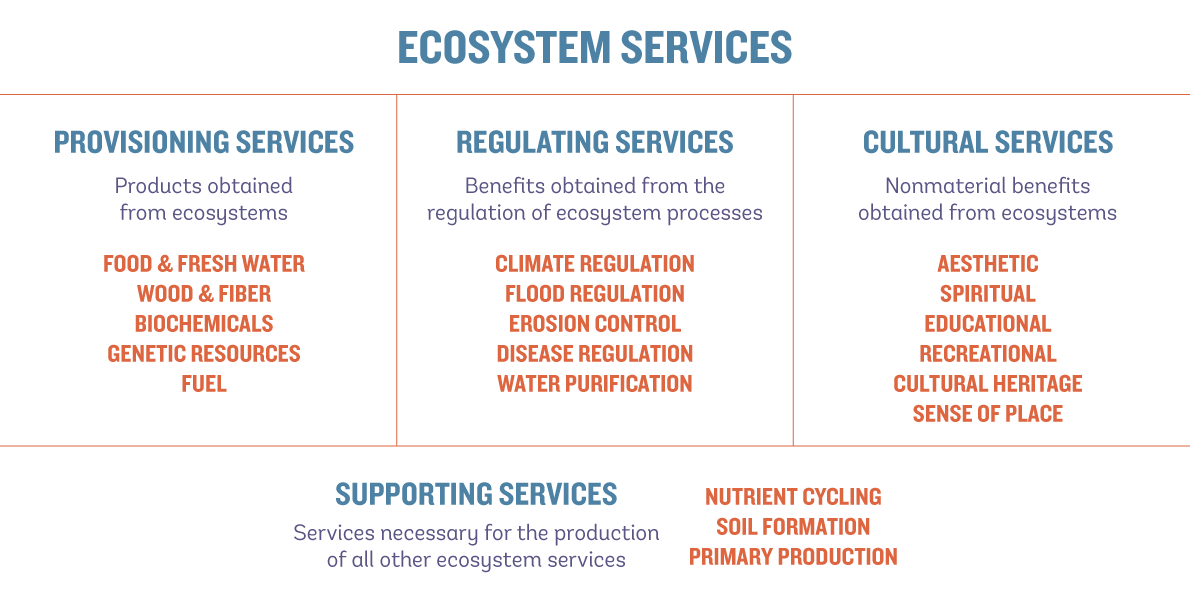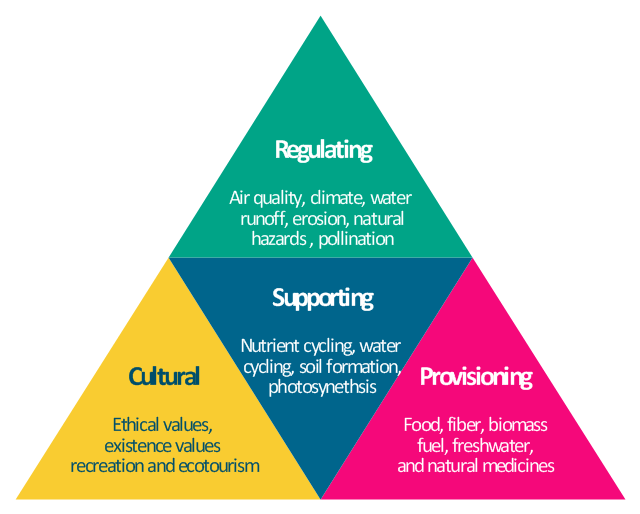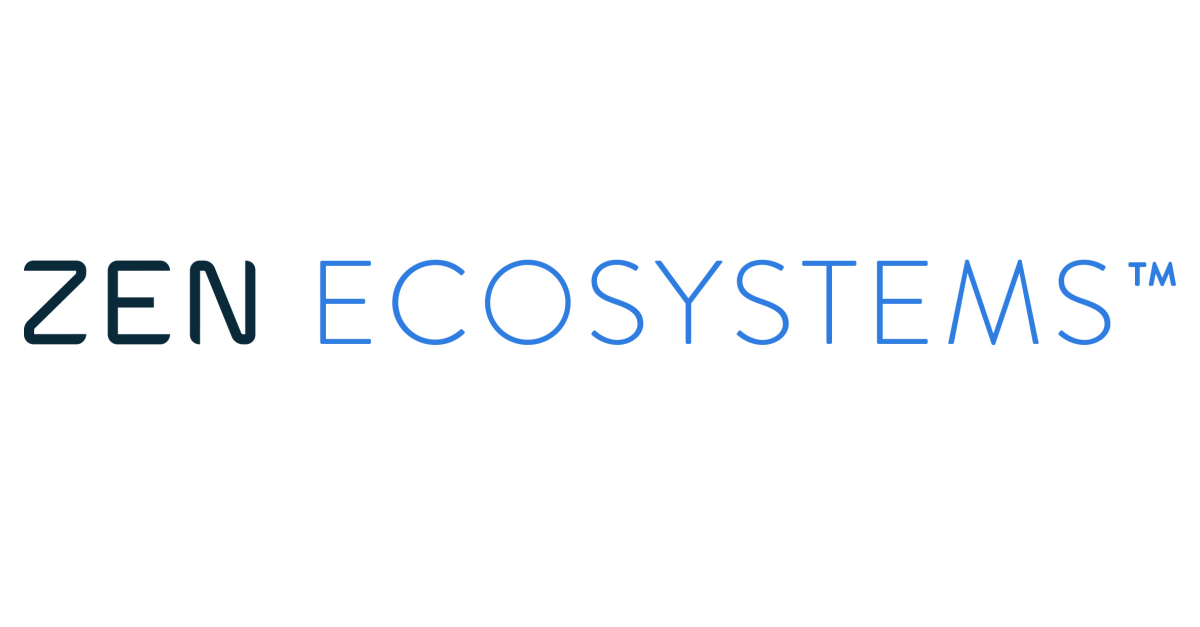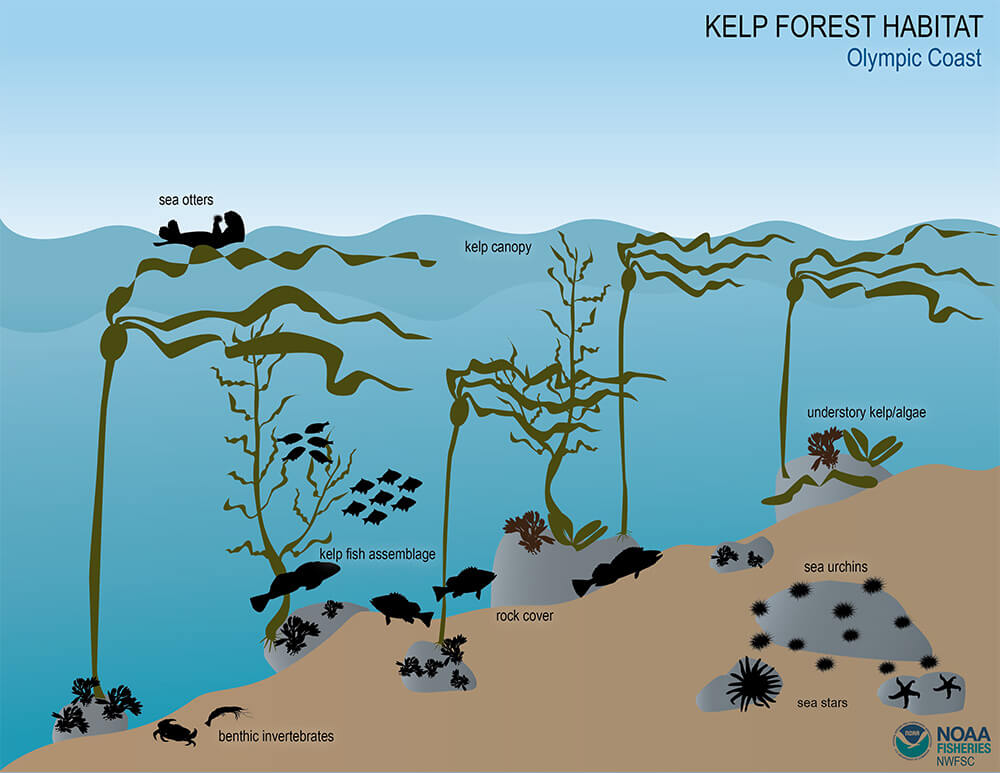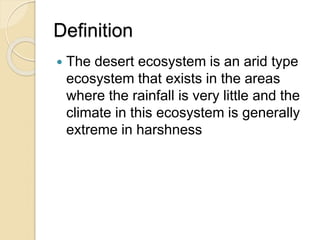Topic ecosystem services value: Discover the crucial role of ecosystem services value in sustaining our planet and enhancing our quality of life through nature"s invaluable contributions.
Table of Content
- What are the methods used to value ecosystem services?
- Understanding Ecosystem Services
- Types of Ecosystem Services
- Economic Valuation of Ecosystem Services
- Case Studies on Ecosystem Services Valuation
- Approaches to Ecosystem Services Valuation
- The Role of Ecosystem Services in Policy Making
- YOUTUBE: Valuation of Ecosystem Services: Classes of Values
- Challenges in Valuing Ecosystem Services
- Future Directions in Ecosystem Services Valuation
What are the methods used to value ecosystem services?
There are various methods used to value ecosystem services, including:
- Market-Based Valuation: This method assigns a monetary value to ecosystem services based on market prices or the cost of replacement.
- Cost-Based Valuation: This approach calculates the value of ecosystem services by estimating the costs that would be incurred if those services were lost.
- Benefit Transfer: This method involves adapting existing valuation studies to assess the value of similar ecosystem services in different locations or contexts.
- Stated Preference Methods: These methods involve directly asking individuals for their willingness to pay for specific ecosystem services through surveys or interviews.
- Production Function Methods: This approach analyzes the relationship between ecosystem services and human well-being by assessing how changes in ecosystem services affect economic outcomes.
READ MORE:
Understanding Ecosystem Services
Ecosystem services are the benefits provided by the natural environment to humans, contributing significantly to our well-being and the economy. These services include provisioning, regulating, cultural, and supporting services that nature offers, such as clean air and water, pollination of crops, climate regulation, and recreational opportunities.
- Provisioning Services: These include the supply of food, water, timber, and fiber.
- Regulating Services: These services include climate regulation, flood control, disease regulation, and water purification.
- Cultural Services: These encompass aesthetic, spiritual, educational, and recreational values.
- Supporting Services: Services such as soil formation, photosynthesis, and nutrient cycling, which underpin the production of all other ecosystem services.
Understanding the full scope and value of these services is crucial for sustainable management and conservation efforts, ensuring that these vital benefits continue to support life on Earth for future generations.
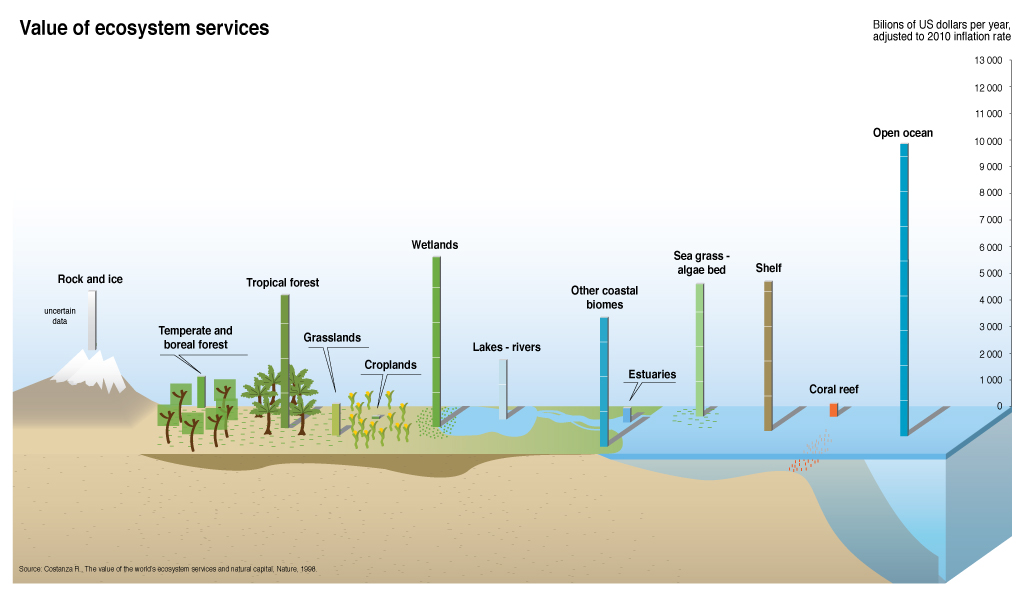
Types of Ecosystem Services
Ecosystem services are vital for human well-being and the planet"s health, categorized into four main types: provisioning, regulating, cultural, and supporting services.
- Provisioning Services: These are the products obtained from ecosystems, including food, fresh water, fuel, fiber, genetic resources, and medicines.
- Regulating Services: These services include the benefits obtained from the regulation of ecosystem processes, such as air quality maintenance, climate regulation, water purification, pollination, and disease control.
- Cultural Services: Non-material benefits obtained from ecosystems through spiritual enrichment, cognitive development, reflection, recreation, and aesthetic experiences, enhancing our health, well-being, and enjoyment of life.
- Supporting Services: These are the natural processes that maintain other services, including nutrient cycling, soil formation, primary production, and the provision of habitat.
Recognizing and valuing these services are crucial for sustainable management and conservation strategies, ensuring the resilience and continued provision of these services for future generations.
Economic Valuation of Ecosystem Services
The economic valuation of ecosystem services translates the ecological benefits provided by nature into quantifiable economic terms. This valuation helps in recognizing, preserving, and enhancing the services ecosystems offer, ensuring sustainable benefits for current and future generations.
- Market-based Valuation: Assigns monetary value to ecosystem services that have direct market prices, such as timber from forests and fish from rivers.
- Cost-based Valuation: Estimates the costs avoided, replaced, or mitigated by ecosystem services, such as flood protection by wetlands reducing the need for expensive flood barriers.
- Benefit Transfer: Applies economic values of ecosystem services from one study area to another, considering similarities in ecosystem type and service provision.
- Contingent Valuation: Uses surveys to ask people how much they would be willing to pay for specific ecosystem services, providing a valuation based on public perception.
This economic perspective on ecosystem services is crucial for policy-making, land-use planning, and environmental conservation, encouraging sustainable practices that align economic development with ecological preservation.

Case Studies on Ecosystem Services Valuation
Exploring case studies on ecosystem services valuation reveals the diverse methods and impactful outcomes of valuing nature"s contributions across different ecosystems and regions.
- Forest Ecosystems: Studies highlight the valuation of carbon sequestration, timber, and biodiversity conservation, showcasing the economic benefits of sustainable forest management.
- Wetlands: Valuation of wetlands emphasizes their role in water purification, flood protection, and habitat provision, underlining the cost-effectiveness of wetland conservation over engineered solutions.
- Agricultural Landscapes: Case studies in agricultural areas demonstrate the value of pollination services, soil fertility, and landscape aesthetics, advocating for agroecological practices.
- Urban Green Spaces: Valuations of urban ecosystems focus on air quality improvement, temperature regulation, and recreational spaces, highlighting the importance of green infrastructure in cities.
- Coastal and Marine Ecosystems: Studies on coral reefs and coastal wetlands illustrate their value in terms of storm protection, fisheries, and tourism, emphasizing the need for marine conservation efforts.
These case studies provide concrete examples of how ecosystem services valuation can inform policy, guide sustainable land-use planning, and justify conservation initiatives, ensuring the continued provision of vital ecosystem services.
Approaches to Ecosystem Services Valuation
Valuing ecosystem services is critical for understanding their contributions to human well-being and guiding sustainable environmental management. Various approaches have been developed to assess these services, each with unique strengths and applications.
- Market Pricing: This approach assigns value based on market prices for ecosystem goods or services directly sold in markets, such as timber or fish.
- Revealed Preferences: Methods like hedonic pricing and travel cost model infer values from related market goods, evaluating how ecosystem services affect economic activities.
- Stated Preferences: Techniques such as contingent valuation and choice experiments ask individuals their willingness to pay for specific ecosystem services, capturing values for non-market goods.
- Cost-based Approaches: These methods estimate costs avoided, replaced, or mitigated due to ecosystem services, such as flood protection provided by wetlands.
- Benefit Transfer: Applies value estimates from one context to another, using existing valuation studies to estimate ecosystem service values in a different setting.
Each approach offers insights into the value of ecosystem services, contributing to a holistic understanding that supports conservation and sustainable use of natural resources.
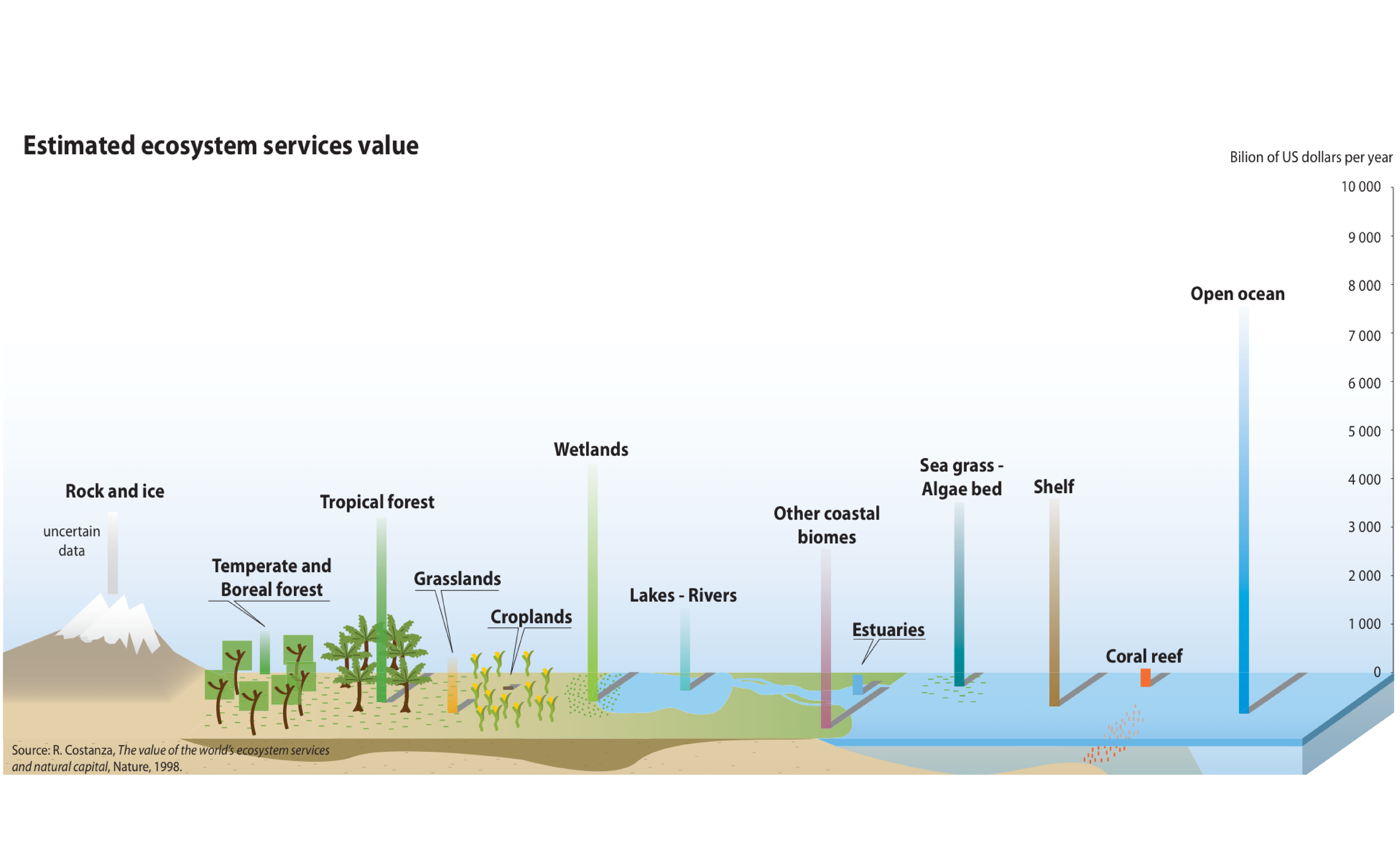
The Role of Ecosystem Services in Policy Making
Ecosystem services play a crucial role in environmental policy making, acting as a bridge between natural ecosystems and economic frameworks that inform decision-making processes. Recognizing the multifaceted values of ecosystem services is essential for developing effective policies that ensure sustainable environmental management and conservation.
- Economic Valuation: Economic valuation of ecosystem services involves quantifying their benefits in monetary terms to aid in decision-making. This approach facilitates the assessment of trade-offs, enabling policymakers to weigh the benefits of preserving ecosystem services against the costs of environmental degradation or policy implementation.
- Total Economic Value (TEV) Framework: The TEV framework broadens the scope of valuation to include both direct use values, such as resources extracted from the environment, and non-use values, which encompass the benefits ecosystems provide simply by existing. This comprehensive approach ensures a more accurate representation of ecosystem services" worth, supporting informed policy choices.
- Policy Implications: Incorporating ecosystem services valuation into policy-making processes encourages the consideration of natural capital in environmental decisions. It highlights the importance of ecosystems in supporting economic activities and human well-being, advocating for policies that prioritize their preservation and sustainable use.
- Challenges and Recommendations: Despite its benefits, economic valuation faces challenges, including capturing the full spectrum of ecosystem services values and addressing methodological limitations. Recommendations for policymakers include employing economic valuation to evaluate environmental trade-offs, incorporating both use and nonuse values in analyses, and framing valuation exercises to accurately reflect changes in ecosystem services attributable to policy interventions.
Ultimately, recognizing and valuing ecosystem services within policy frameworks is pivotal for sustainable development. It underscores the necessity of integrating ecological considerations into economic decisions, ensuring that the invaluable benefits ecosystems provide are preserved for future generations.
Valuation of Ecosystem Services: Classes of Values
Classes: \"Join our engaging and informative classes to unlock your full potential and learn new skills in a fun and interactive way. Dive into a world of knowledge and growth with us!\" Account: \"Discover the power of managing your finances efficiently with our expert advice and tips. Learn how to take control of your account and secure a prosperous future. Watch now!\"
How to Value and Account for Ecosystems
How should we value ecosystems\' natural services like pollination or clean water? The risk is that, without efforts to measure and ...
Challenges in Valuing Ecosystem Services
Valuing ecosystem services presents several challenges that complicate their integration into policy and management decisions. These challenges stem from both the intrinsic nature of ecosystem services and the methodologies used to value them.
- Complexity and Interconnectedness: Ecosystems are complex and interconnected systems where changes in one service can affect others. This interdependence makes it difficult to isolate and value individual services without considering the broader ecosystem dynamics.
- Non-market Values: Many ecosystem services, such as biodiversity conservation, cultural values, and climate regulation, do not have market prices, making their economic valuation challenging. Non-market valuation techniques, like contingent valuation and choice experiments, are often used but can be subject to biases and uncertainties.
- Temporal and Spatial Scales: The benefits provided by ecosystem services often occur over long time horizons and across different spatial scales. Valuing these services requires accounting for future benefits and costs, which introduces discounting issues and uncertainties about future states of the world.
- Valuation Methodologies: There is no single accepted methodology for valuing ecosystem services, leading to a wide range of estimates. Different approaches can yield vastly different values for the same service, complicating comparisons and integration into decision-making.
- Socio-cultural Values: Ecosystem services have important socio-cultural dimensions that are difficult to quantify and monetize. These include spiritual, recreational, and aesthetic values, which are integral to human well-being but challenging to incorporate into traditional economic frameworks.
- Incomplete Knowledge: Our understanding of ecosystem functions and services is still incomplete. This lack of knowledge hampers the ability to accurately value services, particularly those that are less obvious or indirect, such as the role of wetlands in nutrient cycling.
- Policy and Institutional Barriers: Integrating ecosystem service values into policy and management decisions is often hindered by institutional barriers. These include fragmented governance structures, lack of interdisciplinary approaches, and insufficient legal frameworks to support ecosystem service valuation.
Addressing these challenges requires a concerted effort to improve valuation methodologies, enhance interdisciplinary research, and foster institutional frameworks that support the integration of ecosystem service values into policy and management decisions. Emphasizing the importance of ecosystem services in sustaining human well-being and economic prosperity is vital for motivating these changes.
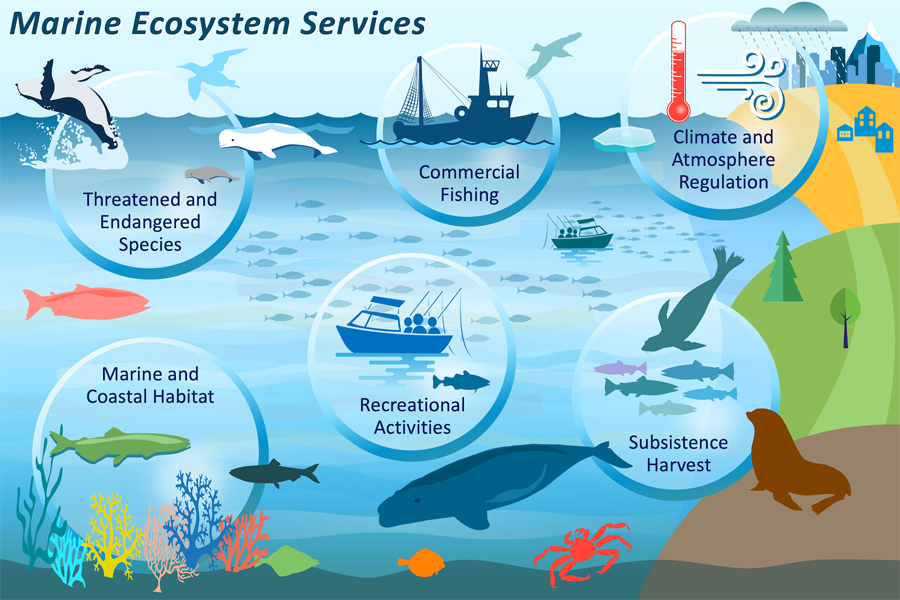
READ MORE:
Future Directions in Ecosystem Services Valuation
The valuation of ecosystem services is recognized as pivotal for informed policy-making and resource management, integrating economic, environmental, and societal benefits. Future directions emphasize refining valuation methodologies to capture the complex interplay between ecosystem functions and human well-being. This includes broadening the scope of valued services, enhancing the precision of valuation techniques, and improving the understanding of ecosystem service interdependencies. Emphasis is also placed on the importance of incorporating non-market values, such as biodiversity and cultural services, into valuation frameworks to ensure comprehensive policy decisions. Furthermore, future efforts will focus on addressing challenges related to quantifying the value of ecosystem services in monetary terms, especially for services without direct market counterparts. Advancements in this field aim to provide a more robust foundation for comparing the benefits of ecosystem services against economic development pressures, thereby supporting sustainable decision-making processes that account for the long-term health of ecosystems and the services they provide.
- Enhancing methodologies for more accurate and comprehensive ecosystem service valuations.
- Incorporating a wider range of ecosystem services, including non-market and cultural services, into valuation frameworks.
- Addressing the challenges of quantifying ecosystem services in monetary terms, especially for non-market services.
- Improving the integration of ecosystem service valuations into policy-making and resource management decisions.
These directions underscore the need for interdisciplinary approaches that combine ecological, economic, and social sciences to better understand and value the contributions of ecosystems to human well-being. By addressing these future directions, ecosystem service valuation can enhance its relevance and applicability in achieving sustainable environmental management and policy outcomes.
Exploring the value of ecosystem services unveils the intrinsic link between nature and human prosperity, highlighting the need for sustainable management and policy decisions that cherish and preserve our natural heritage for future generations.

